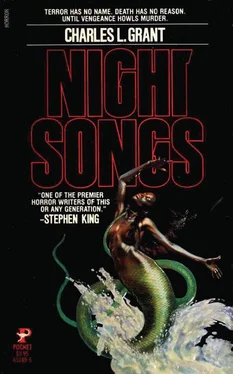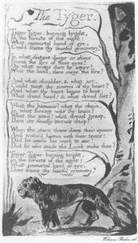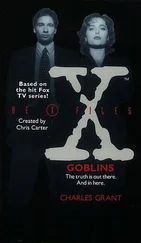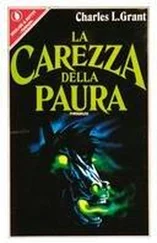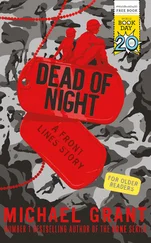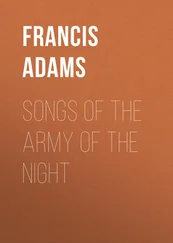A grin pulled at her classic bow lips.
A woman, huh? The only time she ever considered herself something other than someone who owned a business these days was when Matt mentioned Colin. Or when she saw Colin on the street. Or when Colin took her to the movies, or to the mainland for dinner or a drive. Or when Colin took her sailing. Or…
The grin turned to a broad smile, and she laughed aloud.
"God," she said, rising and leaving the small room for the front parlor. "God, Pegeen, you've got it bad."
There wasn't much furniture, but what she had was comfortably old, comfortably thick, solidly reassuring. For a while, after Jim had died, she'd wanted to clear the house of everything that reminded her of him-the fireplace armchair where he'd read his paper every night, the oriental carpet his mother had given them as a wedding present, the polished brass andirons he cleaned after every fire, the framed prints of thoroughbreds. The bed upstairs. His armoire.
Then she'd changed her mind.
One morning, no more special than any other, she woke up and decided that all of it was just as much hers as his, as was the house and the land around it, that he was gone and she was still alive. With Matthew.
She'd cried all day.
Matt had cried with her, as if he'd understood.
Then Colin had arrived, and two years later her son's campaign had begun.
She slumped into the armchair and drew her feet up under her. Directly opposite was the picture window, reflecting the floor lamp to her left, and her shadowed face. She could see the street, however, and the Adams' house on the other side. A puff of fog hung over the streetlamp near the corner. Though the house was warm she hugged herself for a moment and wished she'd been able to attend the funeral. Lilla, she suspected, would be angry with her now, but it was a shame just the same.
She massaged her feet absently. "Mom?"
She looked up, around toward the staircase by the front door. "You called?"
"Can I watch TV?"
"I don't know. You finish your homework?"
"Sure."
She shifted, lowering her feet to the carpet. A stupid question, she thought. If he'd had to read War and Peace by morning the answer would have been the same. She glanced at her watch and did some rapid subtraction. "All right," she called back. "But just till nine, got it? Nine o'clock and that thing is off."
"Thanks!"
"You're welcome," she said without raising her voice, then looked to the telephone on the table beside her. Talk. She needed talk, and with the funeral going on she might as well let her mother know she was still alive and unmarried. Then, thinking about the advice she didn't need but would get anyway, she rose, walked into the study again, and stared at the bookshelves and the cabinets beneath them where Jim had stored his files. She'd gone through them after he died, thinking she might be able to find his notes on the casinos and gamblers, thinking she'd be able to march into FBI headquarters and dump them on an agent's desk and demand justice be done. But she hadn't found them. No one had. And despite police efforts…
Hell, she thought, and looked back to the phone. Maybe Mother wouldn't be so bad, after all. Maybe she wouldn't be up to her lecture on the virtues of having a husband, and a father for poor little Matthew. Like Jim, she would say with undisguised grief in her voice. Or that nice restaurant man, what's his name again? Something Campbell? Cameron?
Peg's sudden smile was mirthless.
What few people knew, and what fewer would have believed if they had known, was that if Jim had lived another year she would have divorced him. Ironic, even bitterly so, but against all accounts and his crusading to save the island, Jim Fletcher had been a goddamned bastard. Miserly, philandering, and ridiculing her attempts to continue running the store she'd inherited from her father. Once, he'd even attempted to force her to choose between the business and him, backing down only when she'd made it absolutely clear what the answer would have been.
By the time of his death she had grown to hate him.
By the time of his death he had lost his son's love.
"Damn," she muttered, and decided to go upstairs and watch television with Matt. If she were lucky, the picture would be new and Matt would have seen it only a dozen or so times. By the end of the last commercial maybe the funeral would be over. Then she could call Colin and maybe he'd come over for a drink, something warm, some talk… maybe a little loving, which suddenly she felt she needed very badly.
But when she reached the staircase she changed her mind and went back to the chair, picked a book up from the floor and opened it to the first page. Soon, she told herself; the funeral will be over soon and then I'll call Colin.
* * *
Lilla met Colin at the threshold and faced him squarely. Her face was drawn, her hair tangled and damp. The black dress clung provocatively to her figure, and might have seemed blasphemous had it not been for the dirt and dust that faded parts of it to grey.
"It's time," she said when he was close enough.
He nodded.
"I have no choice?"
"Lilla…"
She smiled weakly. "I just wanted to try one more time." Then she sagged, and he held her awkwardly, unable to shake the feeling that all her protests had been lies. He was startled, ashamed, stared over her shoulder into the dark of the shack. Gran was in there.
He could sense the corpse and the shroud. And there was something else-perhaps the scent of her grieving-but whatever it was it wrinkled his nose and would have gagged him had she not pulled away and kissed him lightly on the cheek.
He gave her a weak grin. "Easy, lady, people will talk."
"They do anyway."
She was right. And only a handful understood the affinity binding the two, not as lovers but as friends, both of them outcasts in their own way and recognizing each other instantly.
"You'll ride with me, Colin?"
"Of course I will."
She looked to the beach, the boats. "Colin?" She clasped her hands at her waist, scrubbed them dryly. "Colin, Gran wasn't the man people think he was."
"I know."
She frowned briefly. "No. I don't think so. He-"
The indefinable stench from the shack increased, and he imagined it almost as visible as smoke. He held his breath, amazed it didn't bother Lilla. Incense, he decided then, some crap Gran had brought with him from the Caribbean.
"He what?" he prompted gently.
The stench on the wind now.
She shook her head slowly. "It doesn't matter now," she whispered. Then she turned around.
Stronger.
"Lilla, wait. I'll get some of the others-"
"No!" she said, the child-woman gone in the snap of the command. "He is mine, Colin. If this thing has to be done, I will take him myself.
He opened his mouth to protest, but it was too late, and something about the darkness that seemed to shift just over the threshold kept him from following. He felt embarrassed. He wanted to look back at the others and lift his hands to say I tried. Lilla spared him the moment; she returned with the body cradled easily in her arms, and he fell in beside her, holding her elbow to prevent her from slipping. The stench was gone.
* * *
Silently, swiftly, the boats were filled and pushed into the surf. They moved directly east toward the fog's boundary, stopping when they reached a point a mile beyond the jetties' tips.
Colin's arms arched as he rowed the heavy craft, Lilla sitting at the stern, Gran lying between them. But he felt no compulsion to be first at the spot; after all, he thought with a barely stifled laugh, they sure as hell couldn't start without him. The levity shamed him, and he refused to meet Lilla's gaze. He ducked his head and pulled around the already circled boats until he could slip stern first into his place at the top.
Читать дальше
